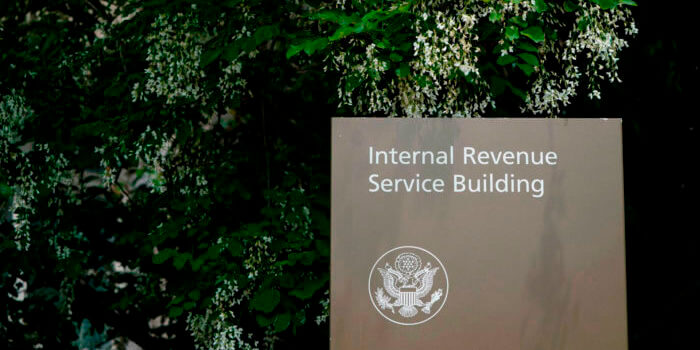(Headline USA) The old axiom “You have to spend money to make money” seems to hold true not just for capitalist entrepreneurs but also for the federal government.
However, it is taxpayers’ money being spent in the government’s case, in order to enable the bloated and corrupt Internal Revenue Service to collect even more from tax delinquents—possibly at gunpoint.
The IRS is poised to take in hundreds of billions of dollars more in overdue and unpaid taxes than previously anticipated, according to new analysis released Tuesday by the Treasury Department and the IRS.
Tax revenues are expected to rise by as much as $561 billion from 2024 to 2034, thanks to stepped-up enforcement made possible with money from the Democrats’ so-called Inflation Reduction Act, which became law in August 2022.
The news comes despite previous claims from House Republicans that they had succeeded in clawing back some of the spending during subsequent budget negotiations.
The allocation had become a flashpoint for debate in the massive bill, which does nothing to reduce inflation but funnels billions into green-energy causes that largely benefit Democrat donors.
Reports indicated that some of the funding would be used to militarize the federal tax-collection agency, alarming many over its expansion of powers amid concerns that unelected bureaucrats and covert intelligence operations have already played an outsize role in election meddling and undermining the will of the people.
The Congressional Budget Office in 2022 estimated that the tens of billions of new IRS funding provided by the IRA would increase revenues by $180.4 billion from 2022 to 2031.
The IRS now says that if IRA funding is restored, renewed and diversified, estimated revenues could reach as much as $851 billion from 2024 to 2034.
Administration officials were using the report to promote President Joe Biden’s economic agenda as he campaigns for reelection—and as the IRS continually faces threats to its funding.
“This analysis demonstrates that President Biden’s investment in rebuilding the IRS will reduce the deficit by hundreds of billions of dollars by making the wealthy and big corporations pay the taxes they owe,” National Economic Adviser Lael Brainard said in a statement.
“Congressional Republicans’ efforts to cut IRS funding show that they prioritize letting the wealthiest Americans and big corporations evade their taxes over cutting the deficit,” Brainard claimed.
Expert analyses—including testimony from at least one IRS whistleblower—indicated that the middle class would be disproportionately affected by the expanded tax-collection efforts, despite Biden officials’ claims to the contrary.
The Inflation Reduction Act gave the IRS an $80 billion infusion of funds. However, House Republicans built a $1.4 billion reduction to the IRS into the debt ceiling and budget cuts package passed by Congress last summer. A separate agreement took an additional $20 billion from the IRS over the next two years to divert to other non-defense programs.
Since then, the agency has tried to show how it is spending the money it has left, in hopes of stemming the cuts. New customer-service improvements rolled out as the tax season began Jan. 29, and earlier this month the IRS announced that it had recouped half a billion dollars in back taxes.
Rep. Jason Smith, the Republican chairman of the House Ways and Means Committee, said in a statement that the report “calls for even more IRS funding, uses pie-in-the-sky numbers, all without being straightforward about where the burdens of massive new enforcement efforts will fall.”
He said increased funding will inevitably result in hundreds of thousands of additional audits for taxpayers making less than $75,000.
After the IRA was signed into law, Treasury Secretary Janet Yellen directed IRS leadership not to increase audit rates on people making less than $400,000 a year annually.
Ensuring that people actually pay their taxes is one of the tax collection agency’s biggest challenges. The audit rate of millionaires fell by more than 70% from 2010 to 2019 and the audit rate on large corporations fell by more than 50%, Treasury’s Deputy Assistant Secretary for Tax Analysis Greg Leiserson told reporters.
IRA funding “is enabling the IRS to reverse this trend,” Leiserson said.
The tax gap—which is the difference between taxes owed and taxes paid—has grown to more than $600 billion annually, according to the IRS.
Adapted from reporting by the Associated Press

